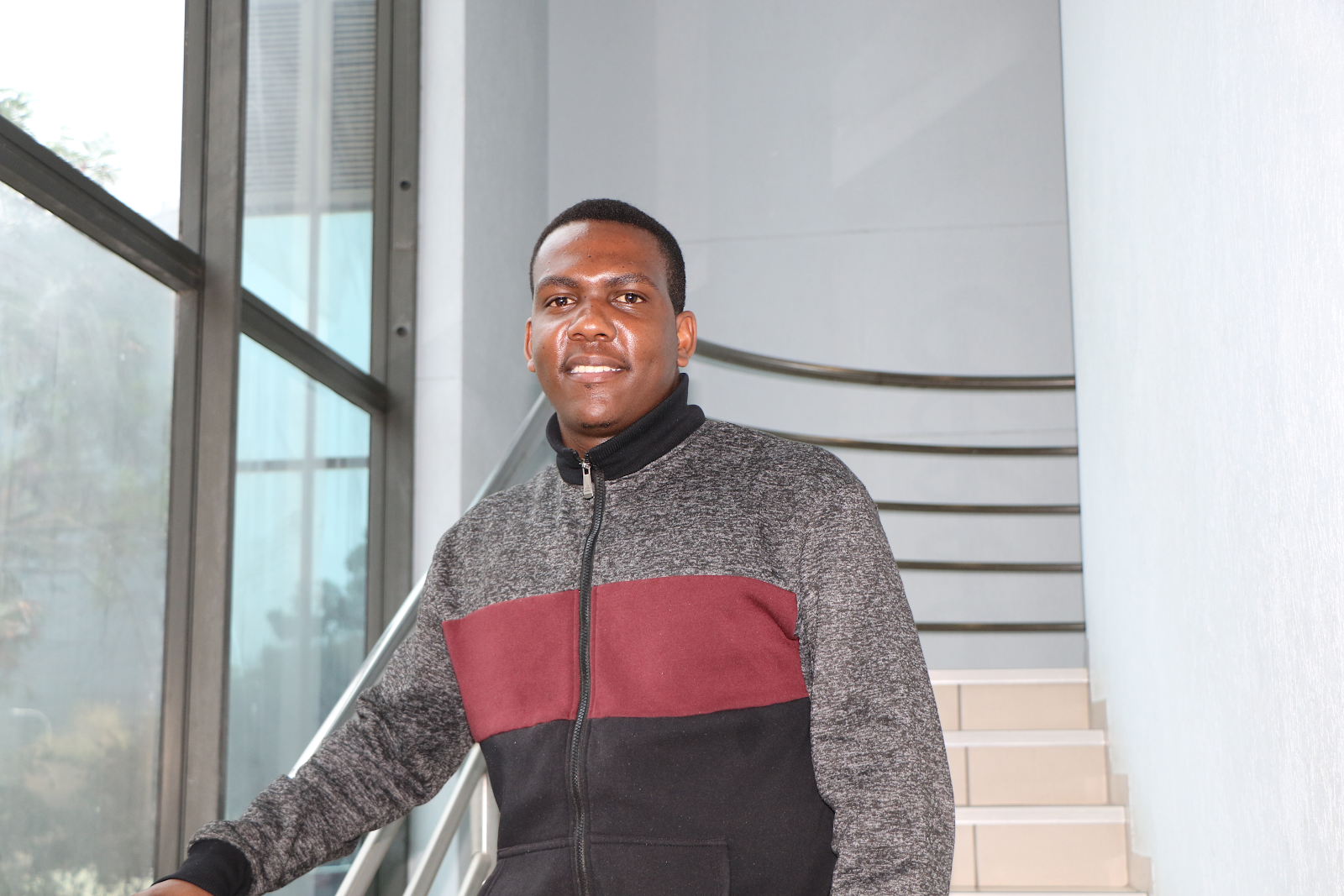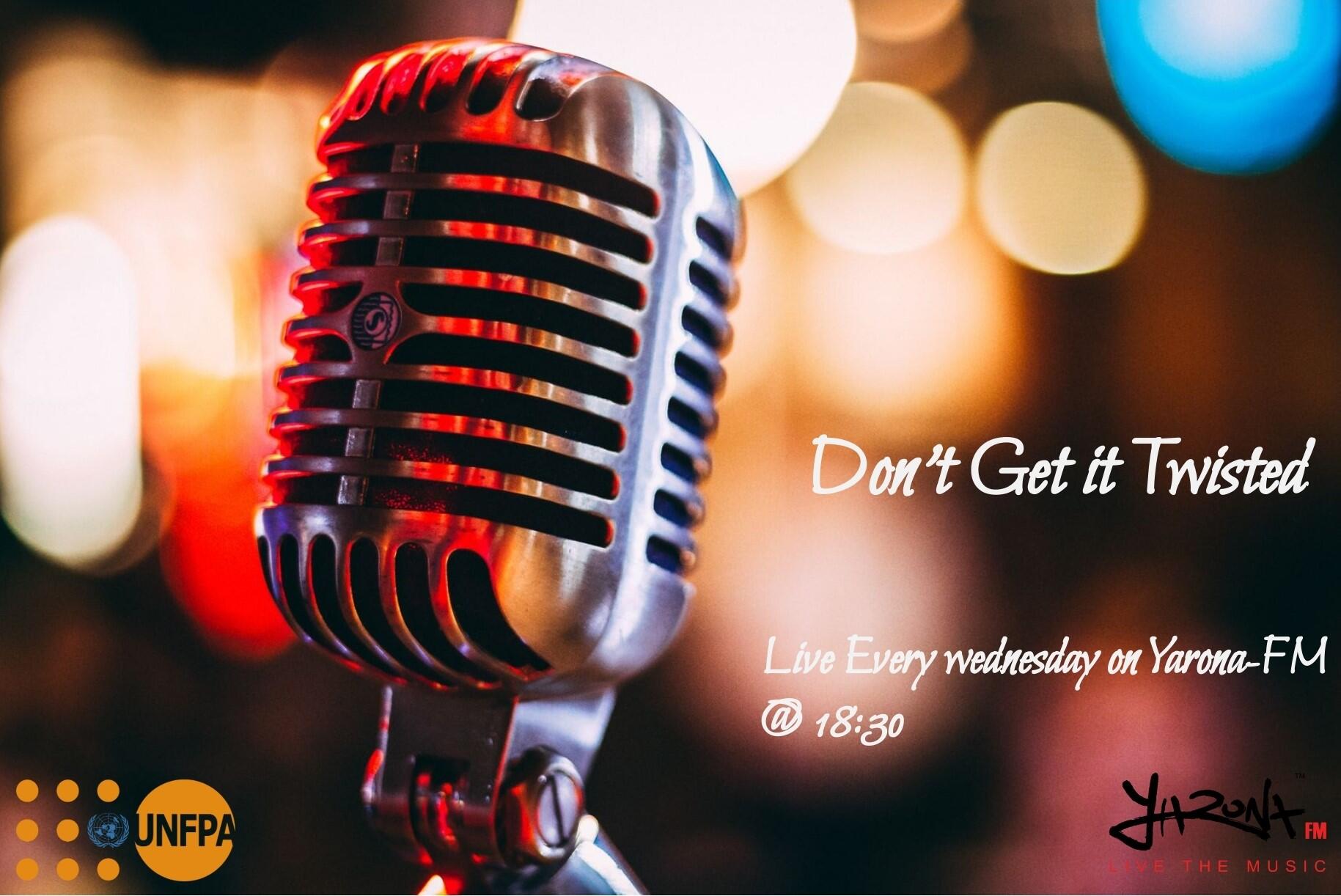Gaborone, BOTSWANA – The bold UNFPA supported weekly radio show, Dont Get It Twisted is breaking down barriers and bringing sex- related issues through the airwaves to the conservative and traditional community of Botswana! The show, hosted by two young people, 23 year old Trevor Oahile and Refilwe Podi raises awareness of critical sexual and reproductive health matters, including family planning, HIV prevention, gender based violence, youth leadership and relationship realities among others. The show airs on a youth focused radio station, Yarona FM which reaches communities throughout the country.
“We use this radio platform to raise awareness on sexual and reproductive health issues especially to young people, since our society still harbours some resistance against openly discussing them, due to either cultural or religious beliefs,” says Trevor Oahile, one of the co-hosts.
Equipping young minds with knowledge
Due to the conservative nature of culture in Botswana, it’s is difficult to find someone to openly talk to about sex, contraceptives, menstruation and any other topics deemed uncomforatble. This can therefore make it difficult for young people to prevent unplanned pregnancies or protect themselves against sexually transmitted infections, including HIV.
Game Tumisang (20) attests that the show remains a powerful platform for sharing information on issues pertaining to sexuality. She noted most topics discussed on the show still remain a taboo in society, but the Don't Get It Twisted avails a platform for young people to discuss issues anonymously.
“Young people are naturally curious and have a natural inclination to experiment, therefore they sometimes engage in risky behaviours without being aware of the outcomes of such actions, which in the end may turn out to jeopardize their future. Therefore this show is a good platform as it fills the gap of limited access to information and equips us with accurate information so that we can make informed decisions about our lives,” says Game.
Game emphasized topics discussed in the show are interesting as it is something that everyone can relate to, as shown by call-ins and voice notes from listeners sharing their experiences during the show. She appreciated the use of both ordinary people and experts on the show noting that while experts are a credible source of information, inviting ordinary guests makes the show much comprehensible to the ordinary listener.
“People talk much more openly on the radio because they're just a voice on the radio, so it allows them to engage in a way they would be afraid to face-to-face,”

21 year old Kabelo Moitlhoki religiously listens to Don't Get It twisted
Another young person., who religiously listens to the show, 21 year old Kabelo Moitlhoki shared his story on how the show had an impact on his life. Kabelo admits that he didn't know of the availability of different contraceptive methods, safe for the male condom, IUD and the contraceptive pill until he listened to the show.
“This show has been very eye opening for me and helped in making me comfortable to discuss certain topics I could not talk of before. I even took an initiative and engaged the show host to assist in supplying me with the male condoms so that I could share with my peers,”says Kabelo.
“I now confidently carry condoms around or get them at the nearest health facility without any shame”
Kabelo indicates that he was once invited to the show to share his experience with other young people on the topic of ‘side chicks’ and multiple concurrent partners. He admits that he was once involved in multiple partner relationships but has since stopped engaging in risky sexual behaviours, now that he knows better.
“I love the fact that it is young people engaging with other young people in a very relaxed atmosphere and using language for young people (slang) that everyone understands, so it doesn't get boring,”he adds.
Wider outreach
The content of the show is informed by extensive research into the knowledge, attitudes and practices of young people about sex and their sexual health as well as current affairs, as the show tries to remain relevant and timely. Once in a while, an expert is invited to the show to give expert health advice such as the Ministry of Health and Wellness and other partners. The Don't Get it Twisted radio show broadcasts on primetime Wednesday evening, and reaches over 240 000 young people annually across the country.
In addition to radio, the programme content is publicized to a large social media community on both Facebook and Twitter, generating dialogue and providing further platforms for audiences to discuss the issues that matter to them.
__Priscilla Rabasimane



